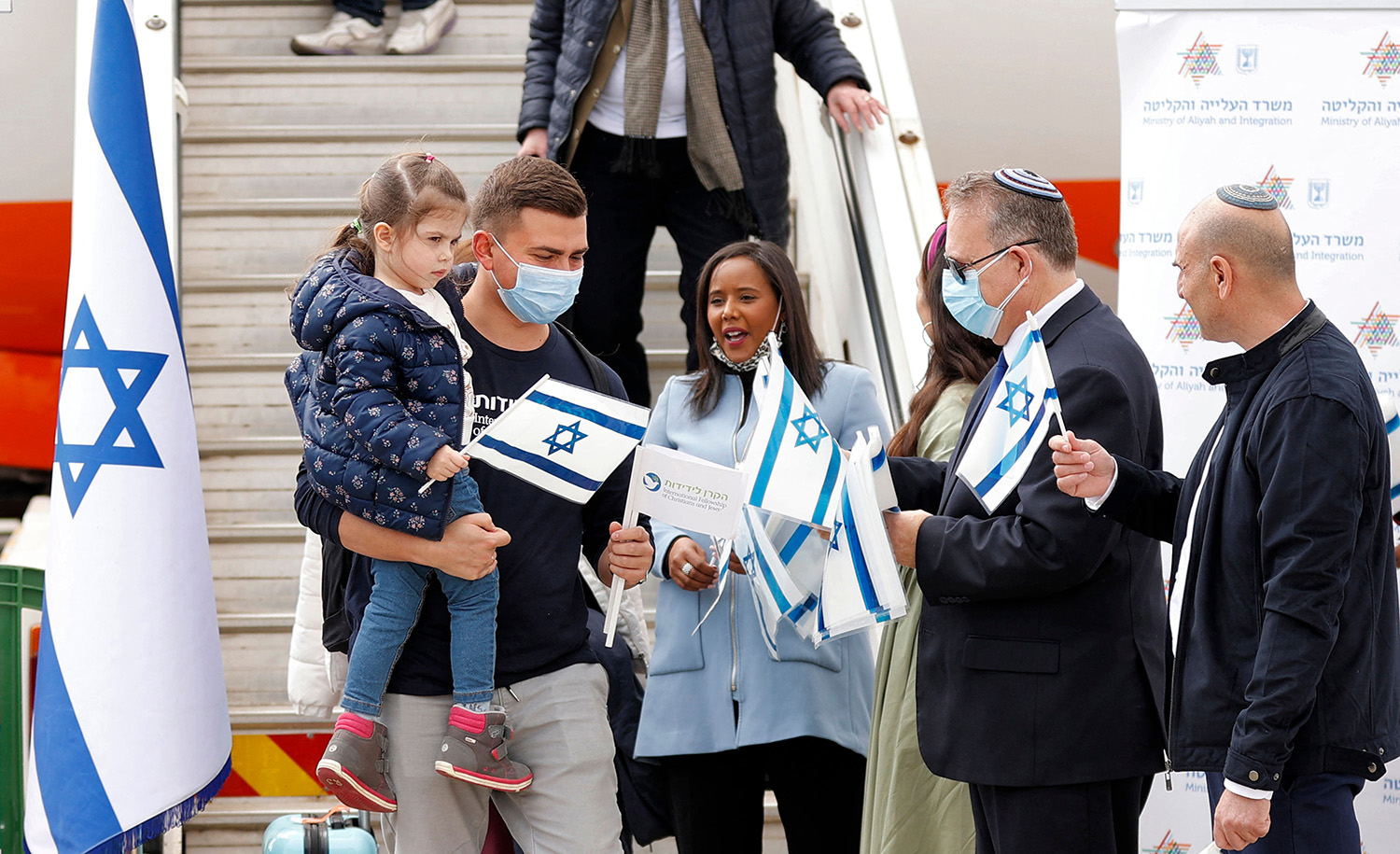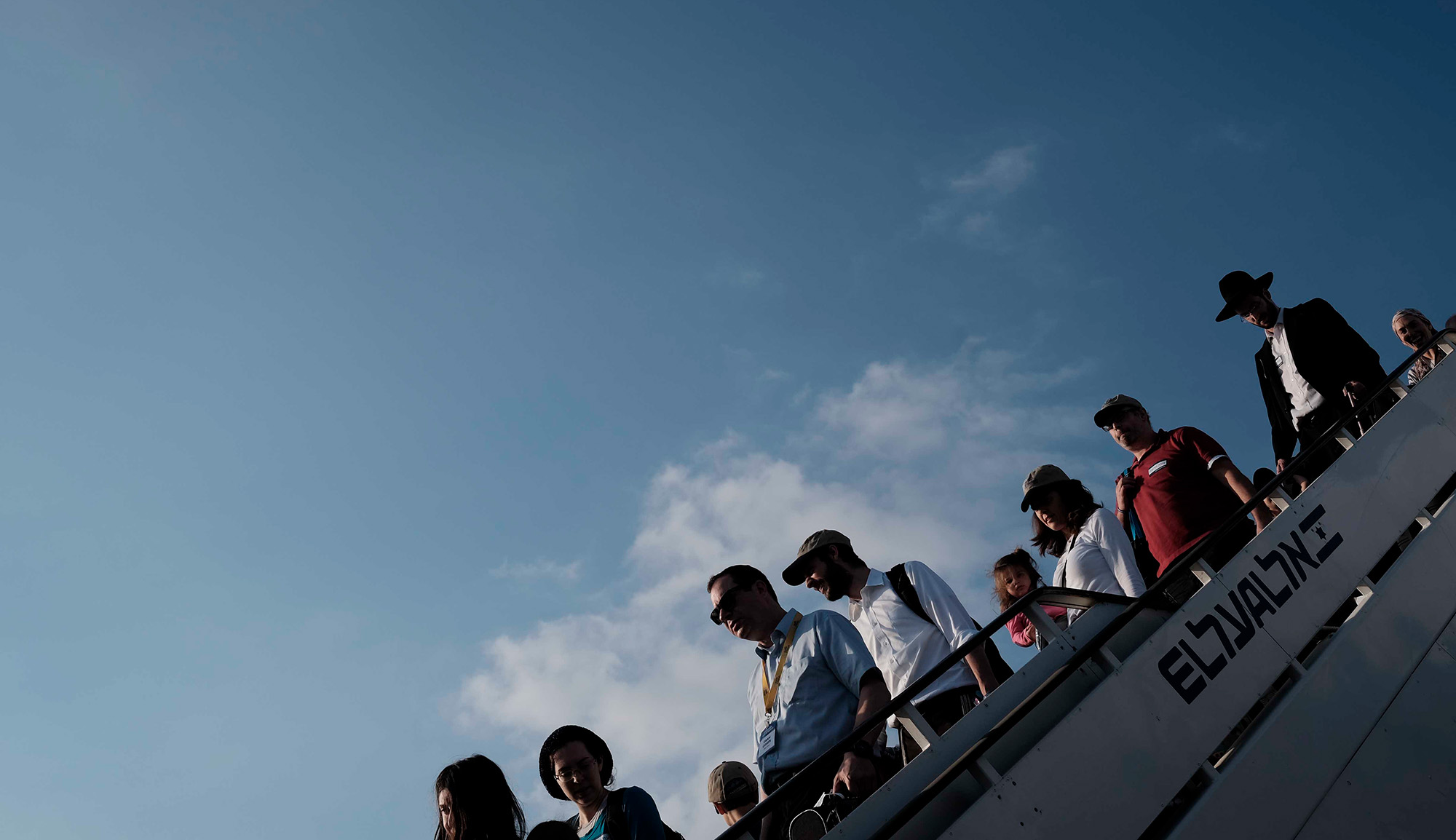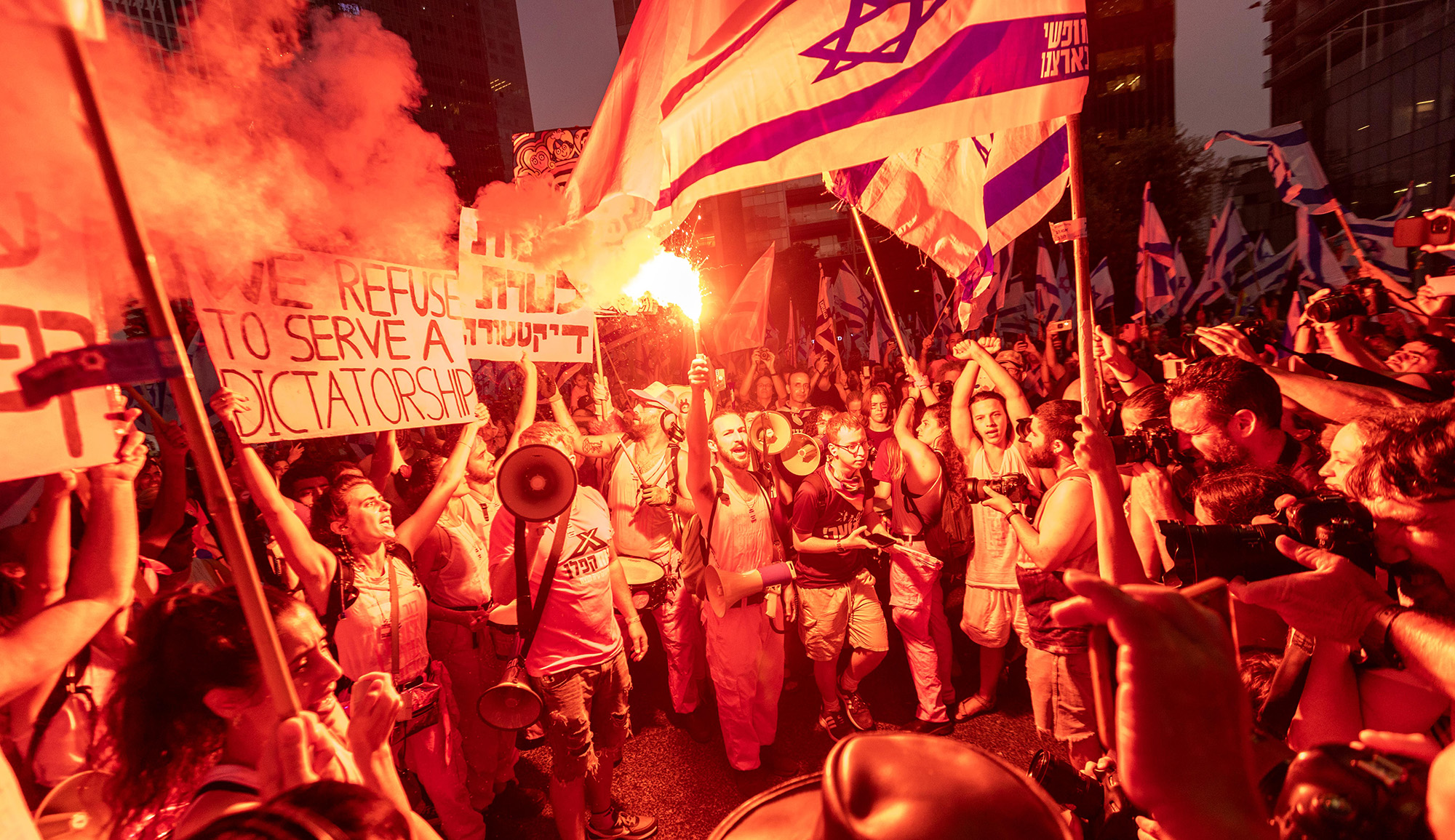Rafi DeMogge’s article, “The Looming War Over Israel’s Law of Return” examines the controversy surrounding the Law of Return’s Grandchild Clause from two main perspectives. One is political: which of Israel’s political camps will gain voters from the subset of immigrants who are grandchildren of Jews but not recognized as Jews themselves (“others”)? The other perspective is identity-related: which vision of the state will support an expanded circle of immigration that includes grandchildren of Jews, and which will oppose it? Additionally, the article offers an illuminating discussion of the issue’s objective aspects (demography especially) and its subjective aspects (public opinion on what the immigration of “others” means).
His conclusion is that even if, at this time, Israel’s right-wing government will not be advancing the cancellation of the Grandchild Clause—although it corresponds with the political interests of its constituent factions and the identity preferences of its voters—the issue will become a perennial topic of dispute in the foreseeable future, one that will overshadow even the current judicial-reform controversy.
I would like to add a number of points to this important discussion. I will begin by noting considerations that support cancellation of the Grandchild Clause, followed by strong arguments against its cancellation. I will conclude by indicating what I believe to be the appropriate way to address the challenge.
Considerations that support cancellation of the Grandchild Clause:
Jews and Arabs: DeMogge’s article focuses on the impact of non-Jewish immigration on the Jewish population itself, but it is clear such immigration also has an impact on the relationship between the Jewish and Arab citizens of Israel. As long as immigration was open solely to those whom the nation-state recognized as members of its own nationality—that is, Jews—the law could be justified, and that is what the Supreme Court of Israel has found time after time. The international community, for the most part, has not challenged this. But if the grandchildren are not recognized by the state as Jews—and today over two-thirds of those eligible for immigration under the Law of Return are not—what is the justification for giving them the option of unrestricted immigration?
It might be argued that the state of Israel allows them to immigrate not out of a genuine intention to “ingather the exiles” but in order to change Israeli demography so as to dilute the proportion of the country’s Arab citizens. The claim that the Law of Return is meant to “import” non-Arabs and thus alter Israel’s demographic balance inappropriately could knock the justification for the Law of Return off its feet, including from the perspective of international law. This consideration transcends camps: liberals, and not just conservatives, ought to fear such a development.
Religion and state: In Israel, as opposed to the United States, there is no separation of religion and state. An important expression of this is the legal determination that personal law—marriage and divorce—be conducted in accordance with religious law. Because Orthodox halakhah does not permit Jews to marry non-Jews, the “other” immigrants cannot, in Israel, marry members of the Jewish majority. It is easy to see that as the number of immigrants not recognized as Jews increases (today they amount to 5 percent of the population), so will the pressure to change the unreasonable legal situation that denies them, practically speaking, the right to marry. It follows that a significant increase in the population of “others” will lead to a growing demand for the separation of religion and state. This is a sure recipe for deepening the culture war that is already vexing Israel.
Social cohesion: Over half of Israel’s Jews oppose intermarriage. In their view, a massive influx of non-Jews, even if they are zera Yisrael (descendants of Jews), constitutes a threat, as it increases the chance of the erosion of Jewish identity in future generations. That is why there are calls for the compilation of genealogical registry for Jews, which will not include the “others.” This could prove to be a dramatic development: the division of Israeli society into two separate tribes that do not intermarry. Not only that, but the larger the group of those whom the state does not recognize as Jews grows, the more likely that group is to develop a “counterculture” that would characterize it as a new national category, distinct from both Jews and Arabs. These are cohesion-eroding developments that even Israeli liberals should fear.
Is the obvious conclusion that the Grandchild Clause should be abolished? Absolutely not. There are very strong arguments in favor of maintaining it.
Considerations against cancellation of the Grandchild Clause:
Social cohesion: If the state of Israel were to declare, in a Basic Law, that the grandchildren of Jews are ineligible for immigration, it would be a slap in the face to half a million “others” who have already become Israeli citizens in every sense of the word. They might interpret the cancellation of the Grandchild Clause as a declaration by the state that they and their children are unwanted, and that it was a mistake to allow them to immigrate. This would be a stinging insult whose consequences in the Israeli social arena could prove extremely severe.
Israel-Diaspora relations: Although only a very small minority of North American immigrants come to Israel by virtue of the Grandchild Clause, its cancellation could amount to a “writ of divorce” in Israel’s relationship with non-Orthodox North American Jewry. As we know, a great many non-Orthodox Jewish families in North America include grandchildren who are not recognized as Jews by the state of Israel, but who self-identify as Jews and are so regarded by the familial, social, and religious circles to which they belong. Closing the gates of aliyah to them, even if they are unlikely to want to come to Israel in any case, would be a fatal blow to their attachment to the nation-state of the Jewish people, and may even damage their attachment to Judaism itself.
Zionism: Zionism’s explicit objective has been to bring as many daughters and sons of the Jewish people from the Diaspora to the Land of Israel as possible. Cancellation of the Grandchild Clause would reduce the potential for aliyah in the next generation, and immigration to Israel would consist almost exclusively of Orthodox families. The great “ingathering of the exiles” enterprise would be severely crippled. We pray “Restore our fortunes, O Lord, like watercourses in the Negev,” and that is the defining experience of our generation: the return to Zion is depicted as a mighty stream of living water suddenly filling a dry wadi and making the desert bloom. Canceling the Grandchild Clause may turn that stream into a trickle and could mark the end of the “ingathering” enterprise.
Taken together, keeping the Grandchild Clause is problematic, but canceling it is even more problematic. We need a different approach that offers a solution that would not abolish the clause but would nevertheless substantially reduce its negative impact. This, of course, is conversion.
Past Israeli governments have declared the conversion of immigrants descended from Jews as a national mission of the first order. But Israel has failed that vision. The number of conversions conducted over the past twenty years is much smaller than the increase in the number of non-Jewish immigrants. Were the gates of conversion opened to these immigrants, most of the problems I noted above would have been solved.
Attempts have been made to pass a state conversion law, under which the state would recognize the validity of conversions conducted by special courts headed by local rabbis in the cities and towns of Israel. It would then be possible for Orthodox rabbis in these localities to implement halakhah as they see fit. Some of them have stated that they are ready to convert those who want to join the Jewish people and will commit to upholding Jewish tradition, even if they will not adopt a fully religious lifestyle.
Such a development, which echoes the plurality of religious voices that has always been customary throughout the history of halakhah, would enable those rabbis to convert a large proportion of the “others.” Empirical studies show that most immigrants from Eastern Europe—including the “others”—assimilate in Israel not only through learning the language and military service, but also by adopting the way of life that characterizes the Israeli majority: traditionalism that does not entail strict observance of all of halakhah, but incorporates a large array of religious practices. According to some of Israel’s rabbis, their cultural preference is a sufficient criterion for their (Orthodox!) conversion.
Opening the gates of conversion is the correct response to the challenge posed by the Law of Return. Rather than changing this law, the Chief Rabbinate’s monopoly on the conversion of zera Yisrael immigrants must be dismantled. In this way, the justification of the Law of Return will not be undermined, and at the same time, religion-and-state tensions will ease, social cohesion will strengthen, another rift with Diaspora Jewry will be avoided, and the blessed process of the return to Zion will continue in full force.
More about: Israel & Zionism








